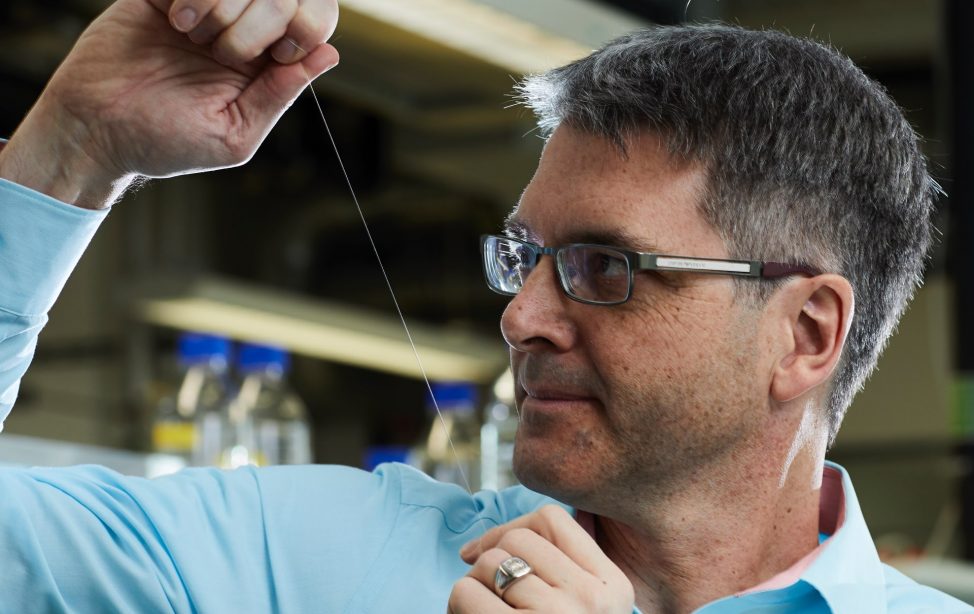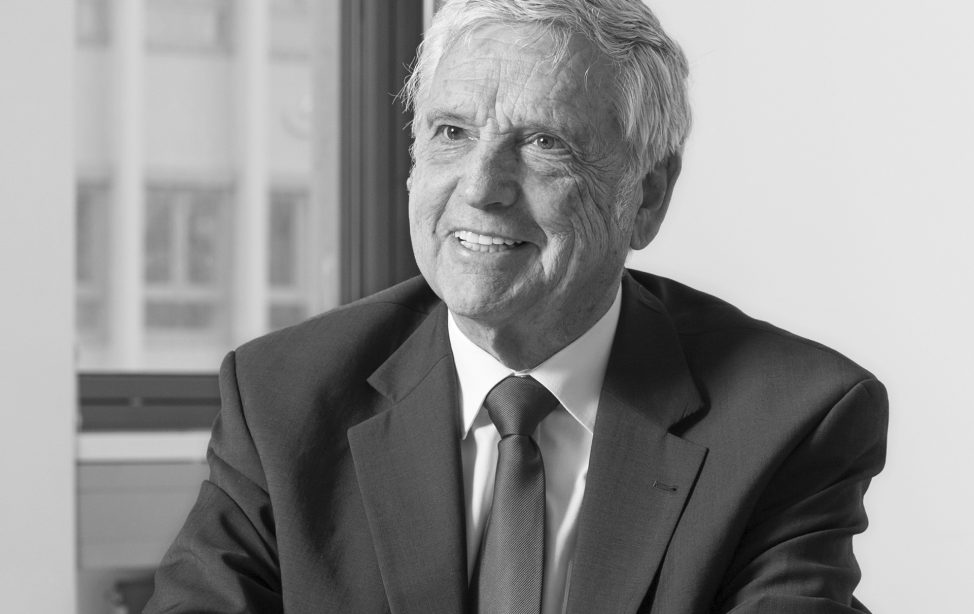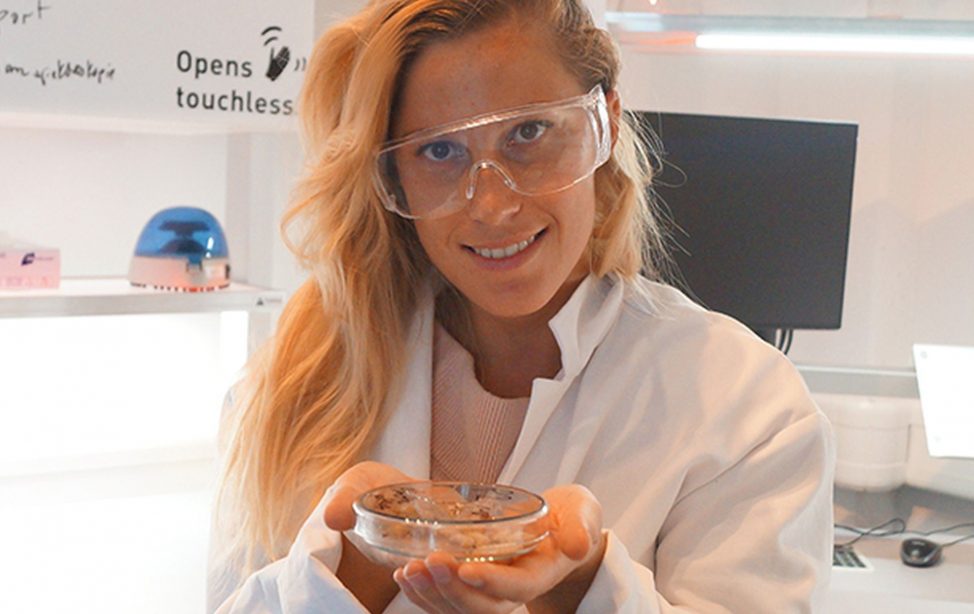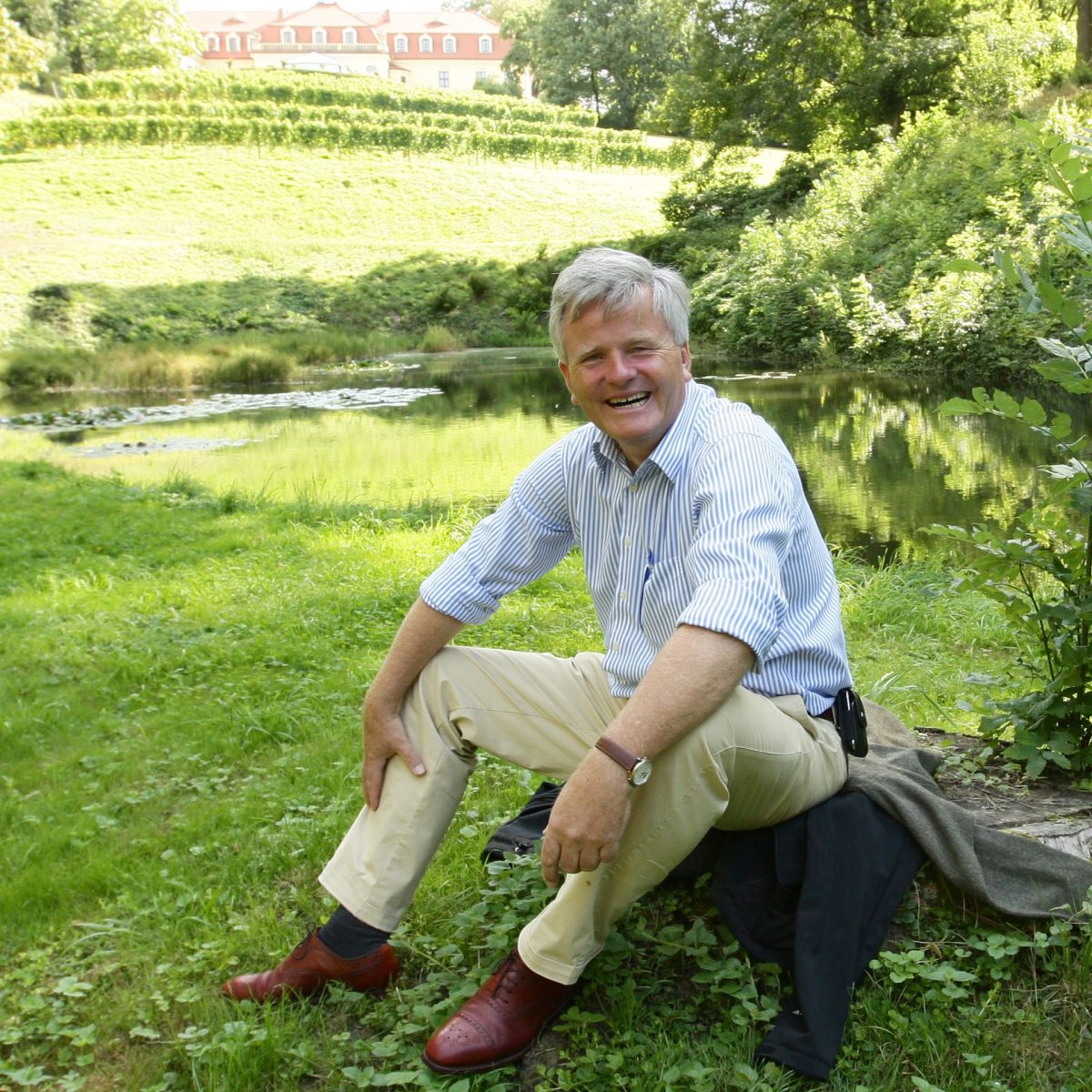
TUM alumnus Georg Prinz zur Lippe at this winery near Meissen (Image: facesbyfrank).
Complex process of reconstruction
The land was run down, the castle was in ruins and neither was for sale. But Georg Prinz zur Lippe did not give up. He took out a loan on his Munich apartment, worked as a freelance consultant and initially bought only the vines of the vineyard. This was the beginning of the rebirth of the castle and the winery. He commuted between Munich and Meissen for the first year and finally moved in 1991 with a whole series of questions on board. Because at that time it was still completely unclear whether the wines would find buyers, whether the financing would work and whether the wine would go down well. “I started with very, very, very many question marks and I would say that the question marks have not diminished to this day. New ones keep popping up.”
In the meantime, Proschwitz Castle is shining in new splendour. The decades-long and never-ending restoration work has paid off (Image: facesbyfrank).
The facility for the disabled, which was housed in the castle, existed there until 2000 – under difficult conditions: “This began with the sewage pipes in the walls being corroded and the sewage no longer getting where it was supposed to go”. So, during the holidays the pipes were re-installed, the roof was repaired, and the floors were redone. The renovation work had to take place while the school for the disabled was in operation. “That was quite ambitious! So many problems that one had to keep an eye on over and over again. It was all very complicated!”
Weihenstephan and the entire world
But Prinz zur Lippe has a soft spot for complexities and, in addition to working at the castle and winery, he is also a professor and management consultant. The entire region, which has become his home, is very close to his heart: “I try to get things moving here in many activities besides viticulture. It’s many, many, many small, exciting projects that, like an Advent calendar, actually open a new door every day, and I think that’s nice.”
He is also regularly abroad. “I am always curious to experience and understand new things. There is so much strength and potential in that if one treats people with respect and at eye level, placing appreciation in the foreground. If you just listen, you can learn an incredible amount for yourself. For me it’s still an elixir of life.”
Prinz zur Lippe also likes to return to Munich again and again. “My connection to Bavaria is still strong. And whenever I hear a Bavarian accent, I’m happy again, because it is all just so familiar to me.” He has very fond memories of his studies in Weihenstephan. His former fellow Weihenstephan students meet and go on joint excursions in the Dresden area, and the Prince maintains close contact with two of them. “What I want, of course, is to give back a little of the training that I received myself. And I want to preserve a cultural asset for the region where I now live and pass it on to the next generation.”
I believe that things that are authentic are more or less always self-explanatory.
“A great deal has changed with people. In the beginning I was the epitome of the class enemy – a prince, an entrepreneur: For God’s sake! and today it’s just completely normal, I’m the neighbor from next door, and it’s all very pleasant and you get invited to a barbecue, and that’s just become very, very normal and friendly.” He himself and his family do not live in the castle, but in the gardener’s house. But he still enjoys the flair: “Sometimes in the evening I sit in front of the fireplace in the castle, really stoke it up, bring out a nice red wine, look into the fireplace and then feel like a little lord of the castle.”
In the long term, as much as possible of the estate in Zadel, which houses the wine production, is to be brought back to Proschwitz, where the winery’s origin is. “I believe that things that are authentic are more or less always self-explanatory. You can often feel the ideas that others had centuries ago, over and over again, and that is ultimately the authenticity of the place”. Three very beautiful historical cellars, which are ideal for use, are just waiting for the wine to return.
And as soon as Prinz zur Lippe talks about his wines, you recognize the passion behind it. He describes the Proschwitz wine as being like lime leaf: with a fine sour note, other finely nuanced aromas and altogether round. “Once you realize what a treasure you have there, then it is even more fun to care for this treasure and explain it in such a way that other people can also understand it and enjoy it for themselves. In addition to classics such as Grauer Burgunder and Riesling, the Prince also cultivates rarer grape varieties.
For example, Elbling, one of Europe’s oldest cultivated white vines, or Gold Riesling – a Saxon rarity that only grows on 16 hectares in Germany. Prinz zur Lippe is particularly proud of the history of the winery. One of the vineyards was mentioned in the founding charter of the city of Freiberg and celebrates its 800th anniversary on June 11 this year. “That really is an amazing piece of historical proof for a winery, it’s phenomenal. We have several vineyards that were already mentioned in documents over 800 years ago. And you can tell there’s a lot of history behind it.” The wine also benefits from this long tradition: “Quality is paramount. The size of the winery is irrelevant.”
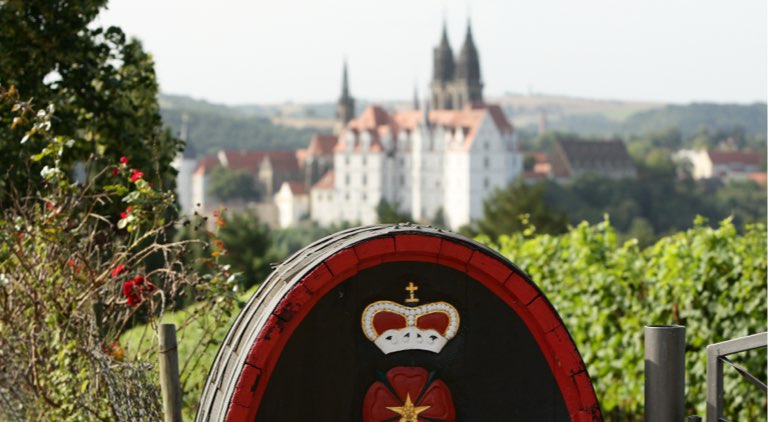
The “Lippische Rose” also adorns the wine of Proschwitz Castle, which is situated picturesquely above the town of Meissen (Image: facesbyfrank).
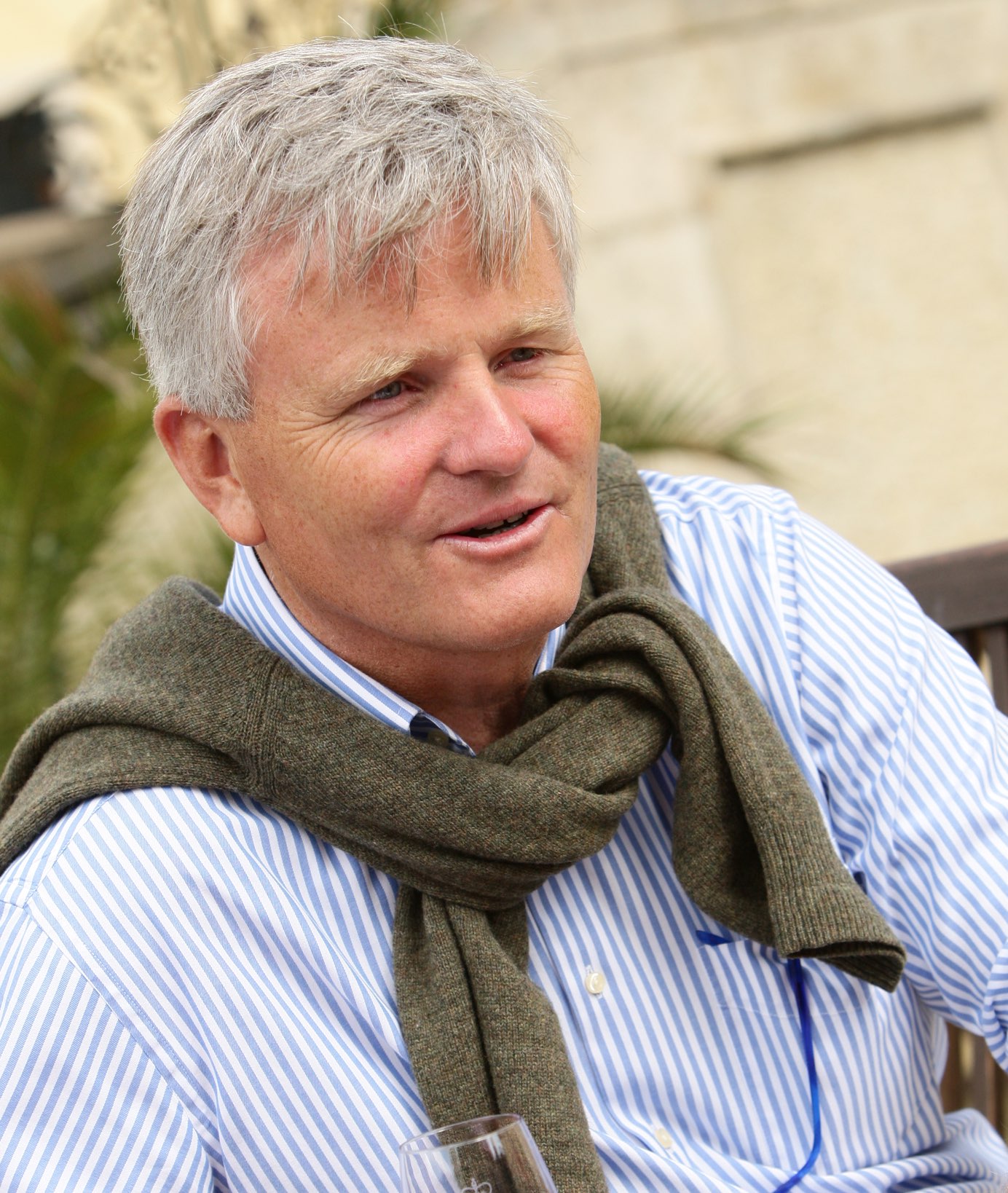
Georg Prinz zur Lippe (Image: facesbyfrank).
Degree in Agrarian Science in 1985, Doctorate in 1991
His greatest challenge so far has been to manage many different things altogether. Besides working on the castle and winery, he was Honorary Consul for the Kingdom of the Netherlands in Saxony for over 20 years. In this function, he supervised Erasmus exchanges for students and created cooperation projects with Dutch universities, developed an MBA program, and supports the MINT sciences and MINT professions.
He has also been an honorary professor at the TU Bergakademie Freiberg for several years and works very successfully as a management consultant. Today, he is also a member of various advisory and supervisory boards, especially at companies where he has worked as a consultant.
In addition, he is – like his grandfather – canon in the cathedral of Meissen. Doing all of these activities parallel is a joy to him, because so many of them flow into one another. For example, the winery regularly serves as a case study in his courses at the university. “And, despite all that, I do try to reduce everything a little just to free my mind from time to time and to be there for my family.”
